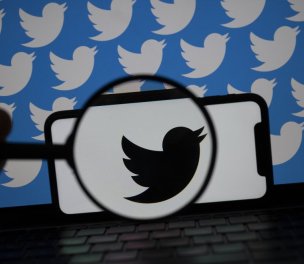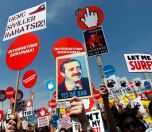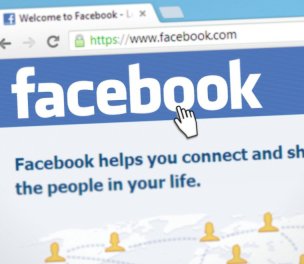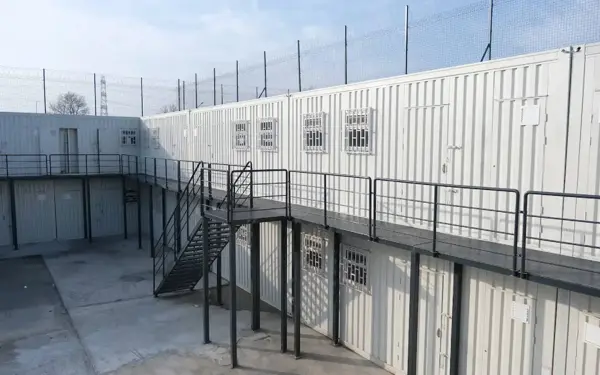Click to read the article in Turkish
The new social media law entered into force in Turkey last October. While the new law requires social media companies to appoint local representatives in the country, the sanctions on the ones declining to do so are now in the third stage: In a recent decree published in the Official Gazette, the Information and Communication Technologies Authority (BTK) has placed an advertising ban on Twitter, Periscope and Pinterest.
Amid criticisms of "digital censorship", it needs to be noted that the advertising ban, imposed after two fines of 10 million lira and 30 million lira, is not necessarily the last sanction to be imposed on companies.
Posing a threat to  freedom of press and expression in Turkey, the law also restricts economic freedoms to a considerable extent. But, how binding are the fines and restrictions imposed by Turkey? And what will happen if the social media companies do not appoint local representatives in compliance with the law?
freedom of press and expression in Turkey, the law also restricts economic freedoms to a considerable extent. But, how binding are the fines and restrictions imposed by Turkey? And what will happen if the social media companies do not appoint local representatives in compliance with the law?
We have spoken with İstanbul Bar Association's Information Technologies (IT) Law Center Founder and Bilgi University lecturer Gökhan Ahi...
'YouTube is the only company that has complied'
Which companies have appointed a local representative so far?
The social network providers that have announced that they have appointed representatives, and as far as I have heard from the media, are Youtube, Facebook (Instagram), DailyMotion, Tiktok, VKontakte, Linkedin.
As we can infer from the advertising ban decision published by the BTK in the Official Gazette on January 19, the ones who have not appointed representatives are Pinterest and Twitter (Periscope).
The law stipulates not only the appointment of local representatives, but also the indication of the representatives' names and contact details on the websites so that one can reach them easily. Which websites have complied with this requirement?
According to the law, in order to meet its requirements, social network providers must appoint at least one person as a representative in Turkey and put the contact details of this person on their websites in such a way that they can be easily seen and accessed. In fact, if this person is a natural person, he or she must be a citizen of the Republic of Turkey.
As far as I have seen so far, the only company that has complied with this requirement is YouTube. Under https://www.youtube.com/t/contact_us/, they have indicated the legal person appointed as the representative and opened their complaint page. It needs to be easily accessible in other social networks, but I have been unable to find it yet.
'Fines cannot be collected'
The companies which failed to appoint representatives were fined 10 million lira first, then 30 million lira. Now, there are advertising bans in effect. How binding are these fines for the companies which have not come to Turkey anyway?
According to the law, no matter how much the companies were fined, they must pay one fourth of the fines imposed thus far.
As no official statement has been made by the BTK, we do not know whether one fourth of the fines have been paid or not. These fines are not binding for the companies which have not appointed local representatives. They cannot be executed or collected.
'There is no obstacle to giving ads'
But, if people or organizations do not abide by this law and give ads to the related companies, is it possible that they face sanctions?
As the advertising ban imposed on social network providers stem from the law, the procedures and principles enacted afterwards also seem legal. But, there are other problems. The law has authorized the BTK, but it does not mention the rights and obligations of the representatives.
The law should have drawn a framework so that the BTK can introduce the secondary arrangements: How will the representatives make an application? What will be the rights and obligations of the representatives? How will they be contacted? What is the limit to the representatives' power? Several issues have been left to arbitrariness.
No special sanctions have been foreseen for the advertisers and users who want to give ads to the social network providers that have been barred from advertising. The sanction should have been indicated in the law, as required by the Constitutional principle of "no crime, no punishment without a previous penal law". In fact, the ban in question is only a ban on taking ads on the part of social network providers. If advertisers and users want to give ads to the social network providers that have not appointed local representatives in Turkey, there is no obstacle in their way.
In the decision of the BTK published in the Official Gazette on January 19, 2021, there are references to several laws; however, based on which specific article of these laws the sanctions will be imposed is not indicated. The state does not set a trap for its citizens; the state shows the crime, the sanction and the legal remedies clearly. But this general principle is not observed here. If we are to make a rather far-fetched comment, a fine of 430 lira can be imposed for "behavior against orders" as per the Law on Misdemeanor. But, as I have said, it is rather far-fetched...
According to the Code of Obligations, the committal of prohibited legal acts leads to obligations, the debtee cannot file a suit against the debtor or follow him or her; according to the Tax Procedural Law, the prohibited legal acts cannot be written off. These can be the sanctions at most and they are already the general principles of the law.
'Next step: Reducing the Internet bandwidth'
What will happen if the companies still do not appoint local representatives? What is the next step after the advertising ban?
The next step after the advertising ban is the reduction of the Internet bandwidth of social network providers; to put it differently, an access block... The BTK Chair can appeal to the penal judgeships of peace, requesting first a reduction of 50 percent, then up to 90 percent.
In a discretionary decision, the judge of the penal judgeship of peace can set a lower percentage (but not below 50 percent), considering the quality of the service provided by the company.
'Rights and freedoms are put under pressure'
Fines, advertising bans and reducing the bandwidth... How do all these bans and sanctions affect us, the end users? What would you like to say when you consider it from the perspective of freedom of expression, freedom of information and the damages to be incurred by economic activities undertaken on these sites?
The main aim of all these legal arrangements is to ensure that social network providers abide by a certain order and users can easily use their right of complaint. There are also attempts in Germany and other European countries to establish a certain order to be observed by social network providers and there are are serious concerns about restrictions on freedom of expression even in these countries.
As for Turkey, it proceeds a bit differently. Though the obligations foreseen for the social network providers are not really extreme or exaggerated, the problems in the legal system of Turkey make people question the concept of "legal certainty". This is still a problem not only for social network providers, but also for the foreign entrepreneurs and investors that want to produce in Turkey, invest in Turkey or want to buy service from Turkey.
As indicated by the Constitutional Court as well, the legal certainty stipulates that norms are predictable, individuals can trust the state in all actions and proceedings and the state, in introducing legal arrangements, abstain from any methods that would undermine this sense of trust.
One cannot talk about legal certainty in a country where the independence of the judiciary is questioned, arbitrary actions are on the increase, judges' rulings are not objective or independent and the laws are enacted based on the political needs of the day.
For instance, the access blocks imposed by the penal judgeships of peace... When we look at the Law no. 5651, we see that the personal rights of individuals are prioritized. The law says that the judgeship can impose an access block as a last resort in violation of personal rights (privacy, name, image, title, honor, personal data, etc.). It is not the case in practice. Rulings are not given about citizens' demands, template rulings of rejection are given without even reading the petitions. But, for some reason, if a request is made by a state institution or a politician, the penal judgeships of peace impose access blocks in favor of the state and politicians immediately.
That being the case, freedom of criticism and expression as well as getting and imparting news is undermined. According to the EngelliWeb 2019 report of the Freedom of Expression Association (İFÖD), access blocks were imposed on 130 thousand URLs, 7 thousand Twitter accounts, 40 thousand tweets, 10 thousand YouTube videos and 6 thousand 200 Facebook contents. 5 thousand 599 of them contained news and most of them were about corruption, extravagance, bribery, patronage and political failure.
As the press cannot fulfil its duty due to the economic, legal and psychological obstacles, these rights and freedoms can be enjoyed on social media. And, now, social media companies are also put under pressure under the pretext of "appointing representatives"; bans and sanctions are imposed. To me, this is the summary of it all. (HA/SD)











as.jpg)




